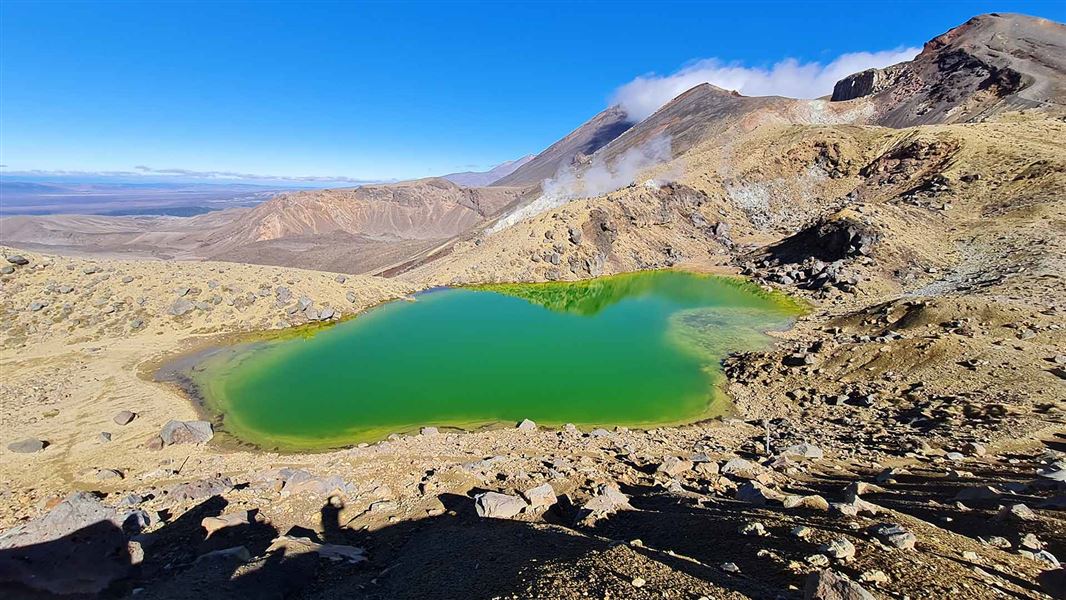Archived content: This media release was accurate on the date of publication.
Date: 19 April 2024
Known for their jewel-like colours caused by dissolved minerals, the Emerald Lake-shores and shallows have been smothered by the invasive Juncus bulbosus for some years.
Juncus bulbosus, or bulbous rush, is native to Eurasia and North Africa and showed up in New Zealand more than a century ago. It is commonly found in swampy places, especially in areas with high rainfall like Tongariro.
DOC Supervisor Danial Van der Lubbe says the lakes are an iconic part of the landscape.
“We know they are important to so many people – hapū, local communities, and those who complete the Tongariro Alpine Crossing - so it’s for more than just biodiversity that we’ve tackled these weeds.”
Twice a year since 2019, rangers conducted weed control around the edges of the lakes, and in the lakes themselves.
This year, for the first time, Juncus density is down to undetectable levels in the lakes - a positive milestone for the health of a site considered internationally significant.
“We still have some work to go around the edges, and will keep checking to make sure it doesn’t pop up again in the lakes themselves,” says Danial.
“The next big step for us is eDNA testing of the larger Blue Lakes for Juncus – we haven’t detected anything visually, but the eDNA check will tell us for sure.”
eDNA testing of Blue Lakes is being conducted as part of the larger Tongariro Alpine Crossing sustainability project, which includes a range of changes to better manage environmental and cultural outcomes.
DOC and Ngāti Hikairo ki Tongariro want to ensure the experience of walking the Tongariro Alpine Crossing is safe, protects the fragile environment, and respects the cultural significance of the area.
Tongariro water-bodies are considered tapu, or sacred, and walkers are asked to avoid swimming in them. By staying clear of the water people can be assured they are upholding cultural values and preventing further weed incursions into the lakes.
Background information
- DOC will be implementing a range of changes to the Tongariro Alpine Crossing in the coming years, aiming to better manage the pressures of visitation, and to strengthen cultural and heritage values in the area.
- By better managing these challenges we will protect Tongariro for future generations.
Contact
For media enquiries contact:
Email: media@doc.govt.nz
